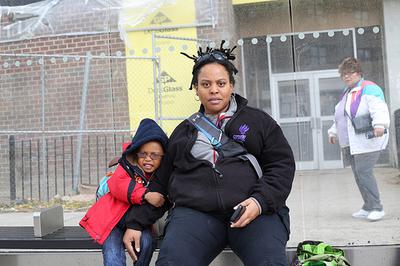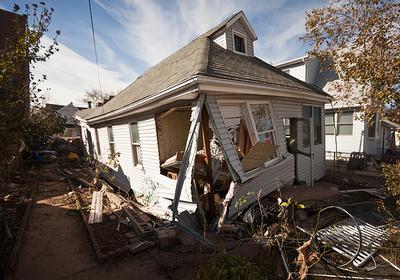Counseling Children After Natural Disasters
by Edralyn Chan
(USA)

Scientists report steady increase in worldwide incidence of natural disasters that uproot families and leave children severely traumatized.
In the aftermath of Hurricane Sandy, non-profit group Save the Children delivered food and supplies to nearly 16,000 children.
They also provided emergency shelter to 1,500 children who didn't have anywhere safe to stay. Unfortunately, the emotional effects of the October 2012 storm might be even more detrimental.
Hurricane Sandy is just the latest headline-making natural disaster to devastate a large number of people. Unfortunately, scientists agree that the number of these events is steadily growing.
According to British charity Oxfam, nearly 300 million people are affected every year by hurricanes, floods, tsunamis, tornadoes, and earthquakes. Children are far more likely than adults to be traumatized by natural disasters. If your family has survived a terrible event like Hurricane Sandy, you are probably focused on getting back the essentials. But you should also focus on making sure your kids are able to cope.
Age-Specific Counseling Options
The National Center for Post-Traumatic Stress Disorder says that nearly 4 percent of adolescents have experienced post traumatic stress disorder (PTSD) in their lifetimes. Many of these cases result from a traumatic experience when they were very young that they were never given the tools to recover from.
In order to help them cope, it's important to understand the signs of trauma that are specific to certain age groups. In very young children and even elementary school children, you're likely to see an increase in clinginess and dependence - they're unwilling to sleep alone or be separated from you for long periods because you won't be there to protect them or something bad could happen to you.
Nightmares, fear of the dark and temper tantrums are also common. In toddlers, trauma often manifests as a regression of milestones to more baby-like behavior. In slightly older children, it's loss of concentration and withdrawal from friends. As children approach adolescence, they're more likely to act out in aggressive or delinquent ways.
What Children Really Need
The worries of children after natural disasters often depend on what kind of event it was and how much damage was caused. It's important to establish a normal routine and let your child know their world is not destroyed forever, especially after the kind of disasters that strike with no warning, like earthquakes and floods.
1. Encourage them to talk about their feelings and share their experience, and let them know that what they're feeling is normal and okay.
2. Point out their strengths and give them the confidence to believe they won't feel this way forever because they can handle being upset and scared.
3. Remain calm.
4. Encourage your children to strengthen supportive relationships with friends and family members who can help them through though times.
5. Ask for help: It's normal for you to be anxious and upset, especially if your home is severely damaged or something even worse has happened. That's why it's okay to ask for help.
Don't be!
Post your Question and Have Pediatrician Answer Your Concern for Free
Counseling Can Help
Trained counselors use Cognitive-Behavioral Therapy to treat children with PTSD, which involves discussing the traumatic event and correcting your child's false or sweeping view of what really happened.
It's not uncommon for children to stop believing the world is safe after a natural disaster, and counselors can help them put this belief into perspective. They can also offer techniques to help children cope with anxiety and be able to discuss their memories without feeling scared.
For young children, counselors use play therapy - incorporating games, drawings, and other activities into a child's expression of their upsetting memories or emotions. Medication for PTSD is rarely prescribed to children, as the right therapy is usually all they need to learn coping skills to help them move on.
Natural disasters can be terrifying for adults, so it's no wonder they have such a powerful effect on kids. No matter what your child is feeling or what questions they need to ask, helping them feel safe and secure should be your first priority in the weeks and months following a cataclysmic event.And who can do it better than you - The Parents.
Even with more of these disasters rocking the globe, children need to understand that bad things simply don't happen every day. Brett Harris is an author that has a counseling degree he earned from the Top Online Counseling Degree Programs which can be found on the web.
Liked what you read just now? Pay it forward!












